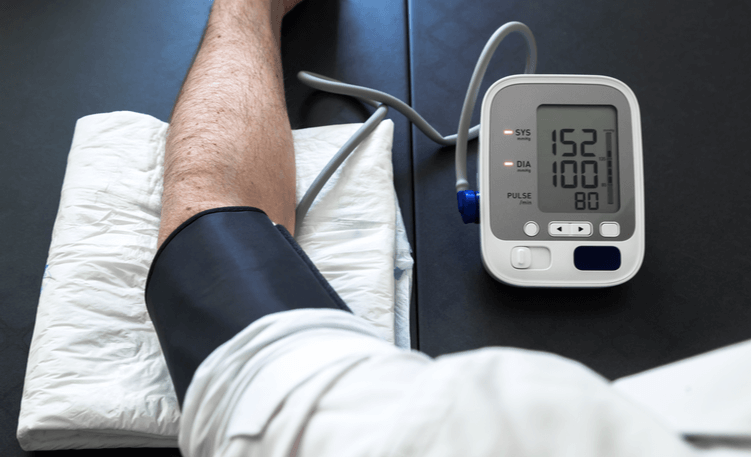Hypertension: A Silent Killer

A study titled Hypertension in India: Trends in Prevalence, Awareness, Treatment and Control revealed that hypertension, commonly known as high blood pressure, contributes to 57% of stroke deaths and 24% of coronary artery deaths in India. Doctors say that with changing lifestyles and gender roles, the impact of hypertension can be seen in both men and women. It therefore becomes extremely important to be aware of how high blood pressure affects the body.
Blood pressure is the force of blood against the walls of the blood vessels. In case of high blood pressure, the force needed to pump blood is higher than what is considered as normal. Having high blood pressure simply means, the heart has to pump harder to supply blood around the body.
Blood pressure is evaluated through two readings, the systolic pressure and the diastolic pressure. The systolic pressure value indicates the pressure in the arteries when the heart beats. The diastolic pressure value denotes the pressure in the arteries between heart beats.
| Classifications | Systolic Reading | Diastolic Reading |
| Normal | 120 mm/Hg | 80 mm/Hg |
| Pre-Hypertension | 120 to 139 mm/Hg | 80 to 89 mm/Hg |
| Hypertension | Above 140 mm/Hg | Above 90 mm/Hg |
Any person who is pre-hypertensive could get high blood pressure in the future, unless remedial measures are taken.
High blood pressure is often termed a ‘silent killer’ as it has no symptoms until organs in the body are seriously affected. Undetected and untreated, it leads to problems in the functions of major organs and serious complications. These include:
1. Stroke
The brain requires adequate blood supply to function normally. High blood pressure weakens the blood vessels in the brain and can also block, narrow, and rupture them. It can also form clots in the arteries which can block the blood flow, leading to a stroke.
2. Heart Attack
A heart attack occurs when one or more of the coronary arteries become blocked. Hypertension damages the inner lining of the arteries; fats from food then begin accumulating on the artery walls, leading to their constriction or a complete blockage. This affects the blood flow in the heart muscle, increasing the risk of coronary artery disease and angina (chest pain). Additionally, heart muscles weaken with untreated high blood pressure, causing heart failure.
3. Kidney Damage
High blood pressure damages blood vessels in the kidneys, impacting their ability to clean body waste effectively. This leads to fluids and toxic waste build-up in the body and eventually causes kidney failure.
4. Damage to Arteries
Arteries travel all across the body carrying oxygenated blood from the heart to various organs. Hypertension can damage the walls of the arteries over time, causing an aneurysm (a bulge in the wall), which may rupture, leading to internal bleeding. Smaller organs can also be affected by damaged arteries; if blood vessels of the eye are affected, it can damage the eyes.
New Numbers for High Blood Pressure
In 2017, The American College of Cardiology (ACC) and the American Heart Association (AHA), under its new guidelines, suggests treating a person for high blood pressure when the readings are 130/80 mm Hg rather than 140/90 mm Hg. Under the revised ACC/AHA hypertension guidelines, the number of adults in USA considered to be having high blood pressure increased by 13.7%.
If these revised guidelines are followed for the Indian population, the incidence of high blood pressure cases will increase significantly. According to Dr RR Kasliwal Director, Clinical and Preventive Cardiology at Medanta -The Medicity, this revision of numbers is good, as it will help patients begin treatment for high blood pressure in the pre-hypertensive stage instead of waiting for the readings to cross 140/90 mm/Hg.
Doctors treat high blood pressure with medicines, dietary changes and physical activities; a combination, that controls the condition and prevents it from aggravating. A diet consisting of low-fat dairy products, fruits and vegetables, helps reduce blood pressure. Half an hour of exercise daily like walking, jogging, swimming, cycling can help maintain normal blood pressure levels or help keep them in check.






